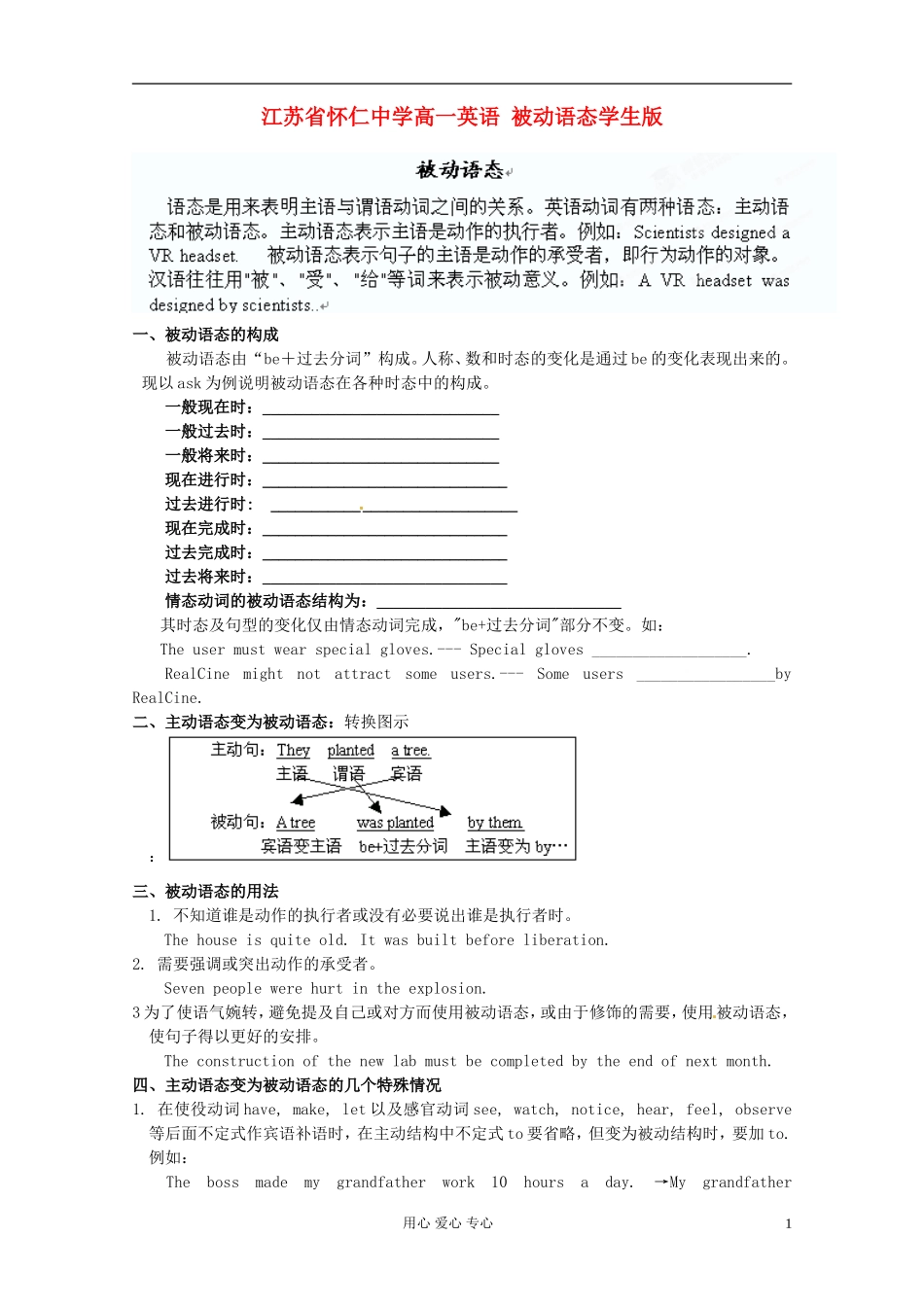江苏省怀仁中学高一英语 被动语态学生版一、被动语态的构成被动语态由“be+过去分词”构成。人称、数和时态的变化是通过 be 的变化表现出来的。现以 ask 为例说明被动语态在各种时态中的构成。一般现在时:_____________________________一般过去时:_____________________________一般将来时:_____________________________现在进行时:______________________________过去进行时: ______________________________现在完成时:______________________________过去完成时:______________________________过去将来时:______________________________情态动词的被动语态结构为:______________________________其时态及句型的变化仅由情态动词完成,"be+过去分词"部分不变。如: The user must wear special gloves.--- Special gloves ___________________.RealCine might not attract some users.--- Some users _________________by RealCine.二、主动语态变为被动语态:转换图示 :三、被动语态的用法 1. 不知道谁是动作的执行者或没有必要说出谁是执行者时。The house is quite old. It was built before liberation.2. 需要强调或突出动作的承受者。Seven people were hurt in the explosion.3 为了使语气婉转,避免提及自己或对方而使用被动语态,或由于修饰的需要,使用被动语态,使句子得以更好的安排。The construction of the new lab must be completed by the end of next month.四、主动语态变为被动语态的几个特殊情况1. 在使役动词 have, make, let 以及感官动词 see, watch, notice, hear, feel, observe等后面不定式作宾语补语时,在主动结构中不定式 to 要省略,但变为被动结构时,要加 to. 例如:The boss made my grandfather work 10 hours a day. →My grandfather 用心 爱心 专心1______________work for 10 hours a day.2. 含有宾语从句的主动结构变为被动语态时,通常用 it 作为形式主语,从句放后。例如:We know that Britain is an island country. →_________________that Britain is an island country. The teacher said that this book has been translated into several languages. →___________that this book has been translated into several languages常见的"It ...


